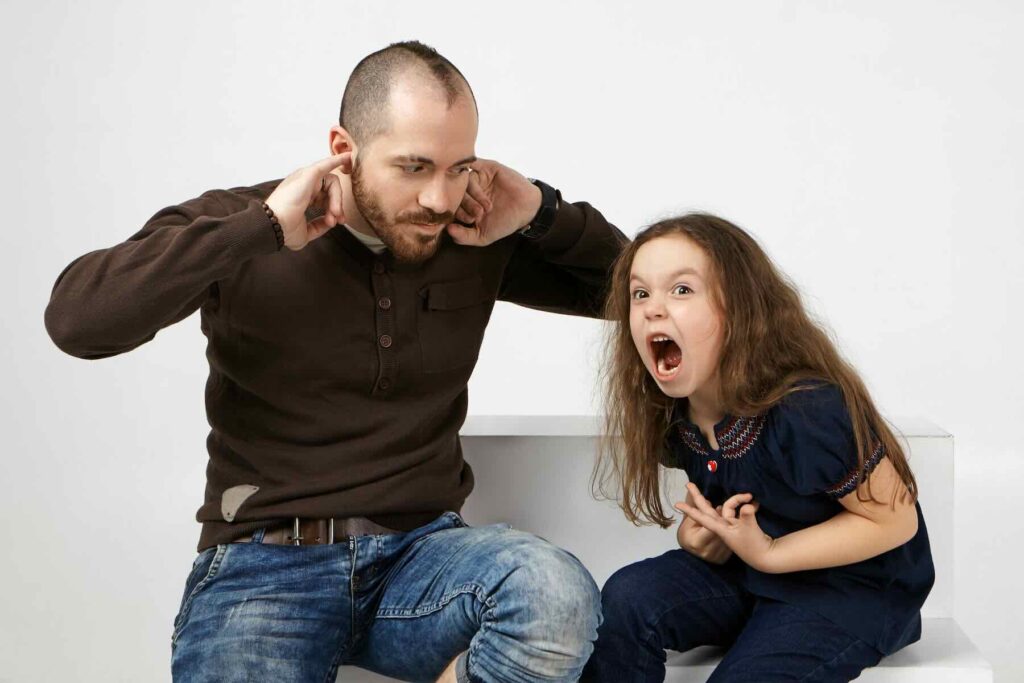And how to avoid them — even when it’s hard
Every parent wants the best for their child. And yet… therapists have never been more popular. Why?
Because almost every adult today carries some kind of emotional baggage from childhood. Some of us are dealing with deep traumas. Others struggle with fears, insecurities, or low self-esteem — all rooted in the way we were raised.
Of course, most parents don’t mean to cause harm. But small patterns repeated daily can leave big marks. Let’s take a closer look at 10 common parenting mistakes that can lead to lasting emotional consequences — and what you can do differently.
1. Overprotecting Your Child

The mother's hyperprotection makes the child infantile. He simply does not know how to cope with the difficulties of life himself or avoids even the hint of any difficulties.
Parents should shield their child from the dangers of the world, but within reasonable limits.
2. Solving Problems for Them

Doing homework, packing their bag, applying to colleges — if you do everything for your child, they may grow up unable to do even the basics.
Support them, guide them, teach them — but don’t do it for them.
3. Be Fair — Always

Children, especially teenagers, have a strong sense of justice. Praise and criticism should always be fair and specific.
This teaches them how to treat others with fairness, too.
4. Your Child Is Not You

You shouldn't try to raise the best version of yourself. Don't assume that your child will want the same things you do. And you certainly shouldn't try to fulfill your dreams and desires in him or her.
A child, even a small child, is a separate person. From birth, you should get to know it like any other person. Yes, you can adjust something. But interests and character should be developed, not changed to suit yourself.
5. Don’t Lie — Not Even “For Their Own Good”

Often when raising a child, parents want to protect him from problems or simply do not want to complicate life for themselves and him. This gives birth to so-called lies for good. Except that for children any lie is a lie. And if you lie, they lie to you.
Children can sense lies even in small things. If you want your child to trust you, trust him or her yourself.
6. Talk About Feelings

Lying about feelings is not allowed either. Parents try not to tell their children about their worries. Many do not even say when they are tired or sad. But children can sense everything.
If you hide your feelings from your child, he will hide his feelings from you. Moreover, he will get used to the fact that adults keep everything to themselves and will act the same way in the future. And this is simply dangerous for the psyche.
Remember, children not only feel everything, they are also much older and more understanding than you think. It also helps your child's emotional development. Through you, he learns about different emotions and realizes that it's okay to feel different feelings.
7. Talk to Kids Like You’d Talk to Adults

The previous point also shows that you need to talk to children more seriously. If your child asks for an expensive toy, but you are having financial difficulties, explain to him how a financial budget works and where the money comes from. Let him understand how you really live.
One of the important things is to call everything by its proper name. Even the genitals. So that children understand how they are organized and know what can and cannot be done.
8. Don’t Create “Absolute Authority”

Yes, kids should respect adults. But they also need to know that not all adults are good. Teach your child to think critically. To ask questions. To speak up when something feels wrong — even if an adult says it’s right.
9. Teach Them That the World Isn’t Just Black and White

Real life is complex. Teach your kids to look deeper than first impressions. Not every situation is simple. Not every person is all good or all bad.
Kids are smarter than we think — and they’re ready to understand more than we give them credit for.
10. Don’t Say Things You’ll Regret

Anger is part of parenting. But words like “You always ruin everything” or “I’m so disappointed in you” can leave emotional scars that last a lifetime.
Focus on the moment, not on past behavior. It’s hard, but it matters.
These are simple rules — and nearly all of us break them sometimes. But the more we can avoid these mistakes, the better chance we give our kids to grow into confident, emotionally stable, and capable adults.






